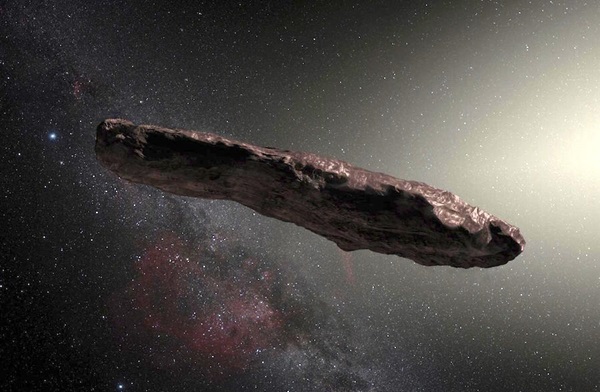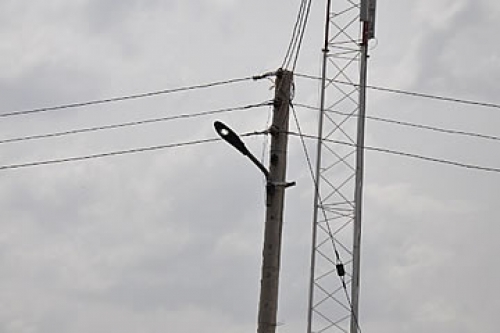By Vanand Meliksetian
Former Vice-President of the United States Dick Cheney once said: “the good lord didn’t see fit to put oil and gas only where there are democratically elected states… Occasionally we have to operate in places where, all considered, one would not normally choose to go. But we go where the business is.”
Europe is surrounded by states with abundant energy resources, but supply from these countries is not always as reliable. Russia, for example, is regularly accused of using energy as a weapon. However, major discoveries of gas in the Eastern Mediterranean could mitigate dependence on Russian gas.
The discovery of a gas field named Tamar near the coast of Israel in 2009 set off a wave of investments in the energy sector. After 9 years, companies are flocking to the region after other discoveries in the territorial waters of Israel, Cyprus, and Egypt. Ever larger finds in the Mediterranean Sea’s Levant Basin such as the Leviathan gas field in 2010 and Zohr in 2015, have the potential to transform the strategic importance of the region.
Few states in the world are geographically so well positioned as Turkey. The country controls Russia’s only warm water port in the Black Sea and serves as a bridge between east and west. Therefore, during the Cold War Ankara was an indispensable member of NATO. More recently, Turkey has the ambition to become an energy hub for Middle Eastern and Caspian energy. Ankara has had mixed successes in attracting investors and maintaining political stability.
After Israel’s significant discoveries, a U.S. backed initiative presented Turkey as an energy hub. Although a land pipeline is the cheapest option to transport gas from the Mediterranean to Europe, political developments have stalled construction. President Erdogan’s escalating public denunciations of Israel have made Jerusalem look for other options. Furthermore, relations with Europe have also been damaged which would be dependent on Turkey as a transit country.
Egypt as the regional gas hub
Egypt’s has the third largest gas reserves in Africa. Therefore, its export-oriented LNG industry came on-stream in 2004 but was shut mid-2013 due to a lack of resources. The growth of the domestic market demanded ever larger volumes, which went at the expense of exports. Instead, Egypt started importing LNG. However, the discovery of the massive Zohr gas field, the largest in the Eastern Mediterranean, has turned around the situation. Egypt imported its last shipment of LNG in September 2018.
Although relations between Egypt and Israel are far from normal, privately held companies have been able to strike a deal. Starting from the first quarter of 2019, in 10 years 64 bcm worth $10 billion will be delivered. The agreement has stirred controversy in Egypt, which until recently was exporting to Israel. However, with this deal, Cairo comes closer in becoming an energy hub.
The recent signing of another agreement, this time with Nicosia to develop a subsea pipelinefrom Cyprus’ Aphrodite gas field, has been another important step. Cypriot gas will be pumped 400 miles (645 kilometers) to the south to Egypt’s LNG facilities. Difficult relations with Nicosia’s northern neighbors make a pipeline to the north highly unlikely.
Cairo has been able to act pragmatically concerning its relations with its neighbors such as Israel while taking advantage of the limited amount of options for exporting gas. The obvious winner in this context has been Egypt and its LNG industry. Its chances of becoming the regional energy hub instead of Turkey have significantly increased.
Turkey’s hope for luck
All littoral states of the Eastern Mediterranean struck ‘gold’ in the shape of natural gas except for Turkey. Ankara strongly opposes the exploitation of the gas resources in the exclusive economic zone of the Republic of Cyprus without a sharing agreement with Northern Cyprus’ Turkish inhabitants. The Turkish Navy prevented ships from Italy’s Eni from performing exploratory drilling off the coast of the Republic of Cyprus.
In search of its own luck, Ankara has set up a project to start looking for gas in the EEZ of the Turkish Republic of Northern Cyprus (TRNC), which is only recognized by Turkey. Kudret Özersay, TRNC deputy prime minister and minister of foreign affairs, proclaimed the desire to turn the TRNC into an energy and electricity hub. However, it seems unlikely that investors will be willing to participate due to political and legal reasons.
The legal situation of the TRNC is an impediment to any major decision involving a longtime commitment worth billions. From an international point of view, the region is de jurepart of the Republic of Cyprus, despite holding no control over the region. The TRNC holds no seat in the WTO.
Large investments require solid legal and political support for companies to earn back their investments. The current economic situation of Turkey makes it dependent on foreign money. However, stringent due diligence rules could impede some international banks in lending the necessary funds.
The Eastern Mediterranean Sea basin promises great rewards, but the risks are also high. With Turkey potentially being the only country that doesn’t profit from the gas bonanza, Ankara has acted aggressively to get what it regards as its fair share. However, it faces a united front from the other littoral states of the Eastern Mediterranean.
Therefore, it is highly unlikely that Turkey will be able to profit in the same way as Cyprus, Egypt or Israel.
Source: Oilprice.com






